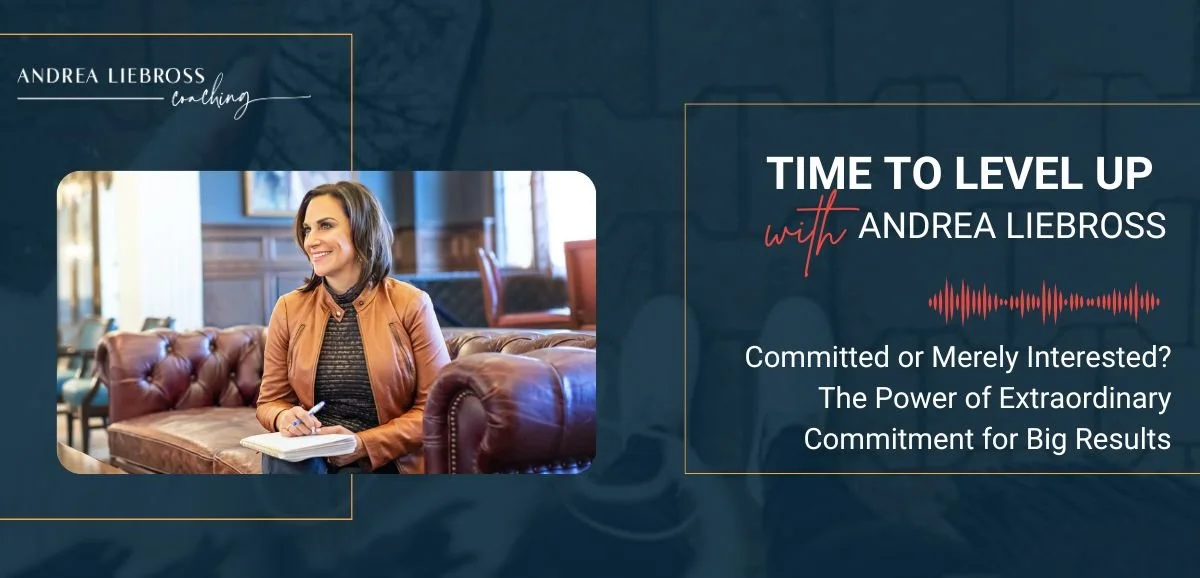144: Committed or Merely Interested? The Power of Extraordinary Commitment for Big Results
Do you have a project you’ve wanted to do that’s been sitting on the shelf for a long time?
Oftentimes, you might get interested in doing something big like writing a book or creating a course. But then you leave it (perhaps even partly done) and never fully commit to it, with all sorts of reasons as to why you keep procrastinating.
It takes extraordinary commitment for big results to bring big thinking projects to fruition. But what exactly does it mean to have extraordinary commitment, and how do you achieve it for yourself?
In this episode of the Time to Level Up podcast, you’ll learn about how to determine whether you're interested or committed to what you want to do. I’ll also teach you why extraordinary commitment is necessary and how to create it so you can finally move forward in your decision-making and get the results you want.
What’s Covered in This Episode About The Power of Extraordinary Commitment for Big Results
2:41 - The difference between interested and committed energy
6:24 - Four questions to ask yourself to identify the type of energy you have right now
13:28 - What it means to be extraordinarily committed
15:16 - Three benefits of being extraordinarily committed to your choices
19:07 - Commitment is really a form of this
21:18 - The extraordinary commitment it took to build our new house
Mentioned In Committed or Merely Interested? The Power of Extraordinary Commitment for Big Results
She Thinks Big by Andrea Liebross
Quotes from this Episode of Time to Level Up
“Putting interested energy into something can be exhausting, and it does take away resources from other things.” - Andrea Liebross
“To wholeheartedly dedicate yourself to something, you've got to be really, really choosy about what you dedicate yourself to.” - Andrea Liebross
“Doing what you're truly emotionally invested in generates energy, no matter how difficult it is.” - Andrea Liebross
Liked this? You'll Enjoy These Other Time to Level Up Episodes
90: How to Switch From Stuck Stress to Productive Stress Mode
137: Nine Fears Holding Female Entrepreneurs Back from Success
138: What Is Big Thinking? Three Parts of Becoming a Big Thinker
[fusebox_transcript]

